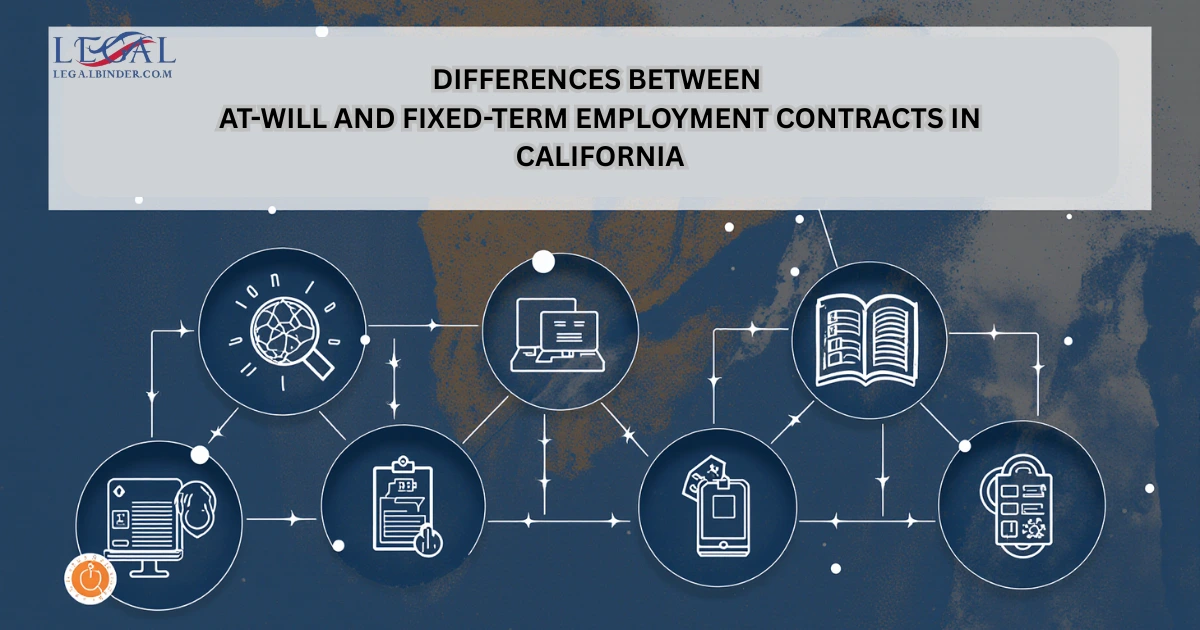Physical Address
304 North Cardinal St.
Dorchester Center, MA 02124
Physical Address
304 North Cardinal St.
Dorchester Center, MA 02124

Dealing with a contract breach in California—where an employer or employee fails to honor the terms of an employment agreement—requires fast, lawful, and documented steps. California’s labor laws, wage rules, and civil procedures create specific remedies and timelines that differ from other states. This guide walks California employers and employees through recognition, state requirements, steps to resolve or escalate, required forms, and common mistakes to avoid.
This guide explains how to identify a contract breach in California, what state agencies and legal pathways are relevant, and the practical steps to resolve disputes. You’ll learn internal remedies, statutory claims (wage, discrimination, retaliation), how to preserve evidence, and where to file complaints in California.
A contract breach in California occurs when one party fails to perform a contractual duty without a lawful excuse. Examples in employment include unpaid wages, failure to provide promised severance, wrongful early termination under a fixed-term agreement, or violation of confidentiality or non-compete promises (though non-competes are largely unenforceable in California).
California has multiple agencies and statutes relevant to employment contract breaches. Use these resources to confirm obligations and remedies:
Also confirm employment eligibility documentation (Form I-9) when disputes involve hiring or termination. :contentReference[oaicite:3]{index=3}
When pursuing remedies in California, prepare these documents:
Processing times vary by route:
Act promptly: statute of limitations for breach of contract in California is generally four years for written contracts and two years for oral contracts. Preserve evidence immediately.
Q1: What if my employer refuses to pay final wages after termination?
A1: In California, discharged employees generally must receive final pay immediately. File a wage claim with the DLSE (DIR) and consider waiting-time penalties under Labor Code. :contentReference[oaicite:14]{index=14}
Q2: Can I sue for breach of an oral employment contract in California?
A2: Yes—but oral contracts are harder to prove. Written contracts carry stronger legal weight; statute of limitations is shorter for oral agreements.
Q3: Should I file with an agency or go straight to court?
A3: For unpaid wages, file with DIR first. For discrimination tied to a breach, file with CRD. Agency remedies can be faster and may be required before court filings in some contexts. :contentReference[oaicite:15]{index=15}
Q4: What damages can I recover in California for breach of employment contract?
A4: Damages may include unpaid wages, benefits, consequential losses, waiting-time penalties, and in some cases reinstatement or injunctive relief. Consult counsel for precise calculations. :contentReference[oaicite:16]{index=16}
Q5: Can an arbitration clause stop me from filing with CRD or DIR?
A5: Arbitration clauses may require private resolution, but California law and agency procedures sometimes allow administrative claims or public enforcement actions to proceed. Review the contract and consult counsel.
Handling a contract breaches in California requires swift documentation, knowledge of relevant California agencies (DIR, CRD), and careful choice between administrative claims, mediation, arbitration, or civil litigation. Preserve records, meet deadlines, and consider legal counsel for high-value or complex breaches. For official forms and step-by-step filing guidance, start with the California Department of Industrial Relations and the California Civil Rights Department linked above. For templates and general resources, return to our homepage or consult a qualified California employment attorney for tailored advice.